Research
Makerere Hosts CARTA’s 11th Cohort of Doctoral Fellows
Published
4 months agoon
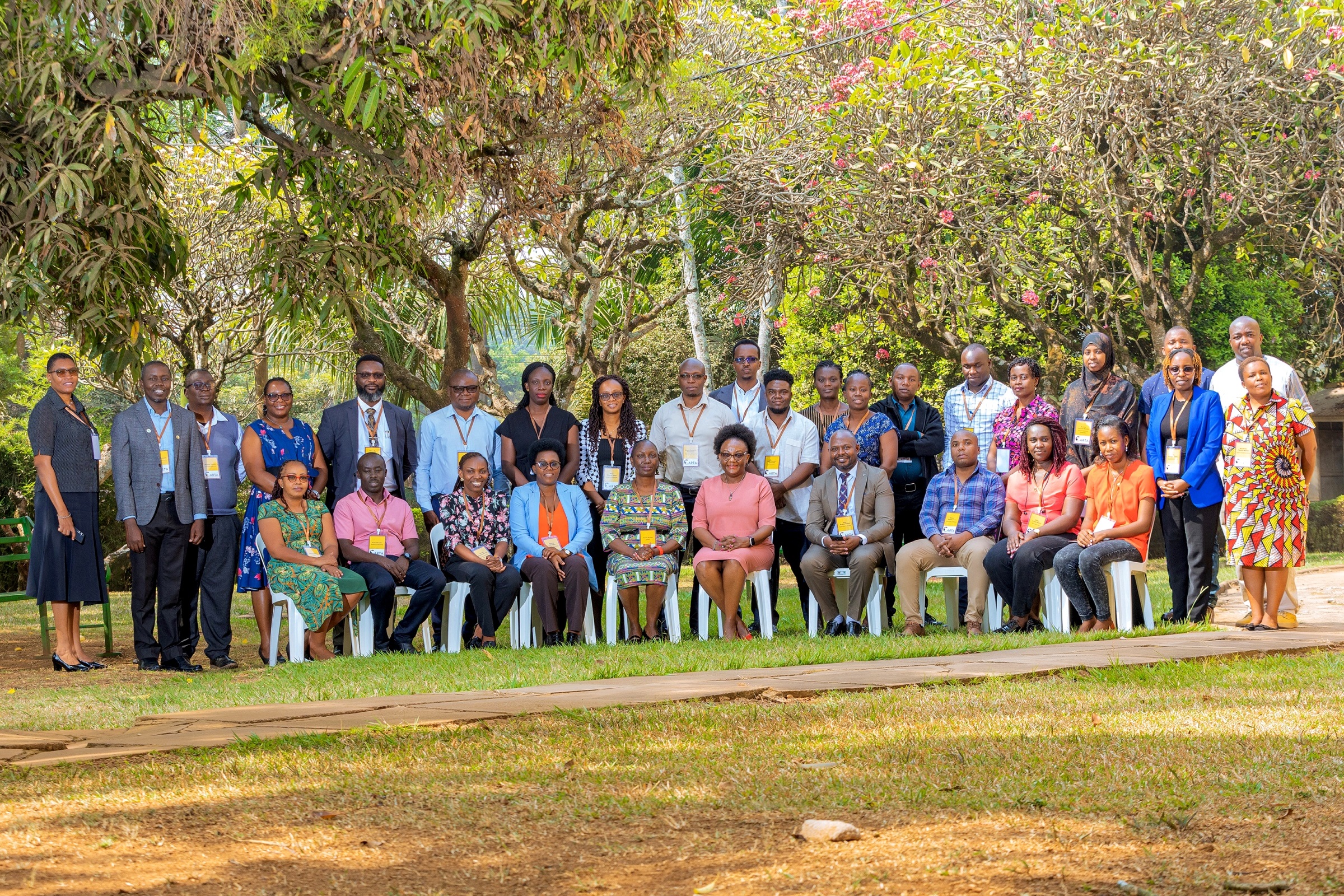
On Monday, March 3, 2025, Makerere University hosted the launch of the 11th cohort of the Consortium for Advanced Research Training in Africa (CARTA) doctoral fellowship. The new cohort comprises 11 females and nine males, drawn from eight partner universities across nine African countries. For the next four years, the group will undergo advanced training through the consortium’s collaborative efforts to strengthen research capacity across the continent.
CARTA, formed in 2008, is a network of eight African partner universities, four research institutes, and eight international collaborators, dedicated to strengthening doctoral training and institutional research capacity in Africa. The consortium is co-led by the African Population and Health Research Center (APHRC), based in Nairobi, Kenya, and the University of Witwatersrand in South Africa. Makerere University is a key partner, leading the consortium’s The Emerging and Re-emerging Infectious Diseases (TERID) East Africa Research Hub.
Among its key interventions, the consortium facilitates targeted and structured training and mentorship aimed at strengthening university-wide research systems. One such initiative is the doctoral fellowship programme’s Joint Advanced Seminars (JAS) started in 2011. JAS is a sequence of four annual seminars designed to support doctoral students registered in different CARTA partner institutions to progress seamlessly through their PhD journeys.
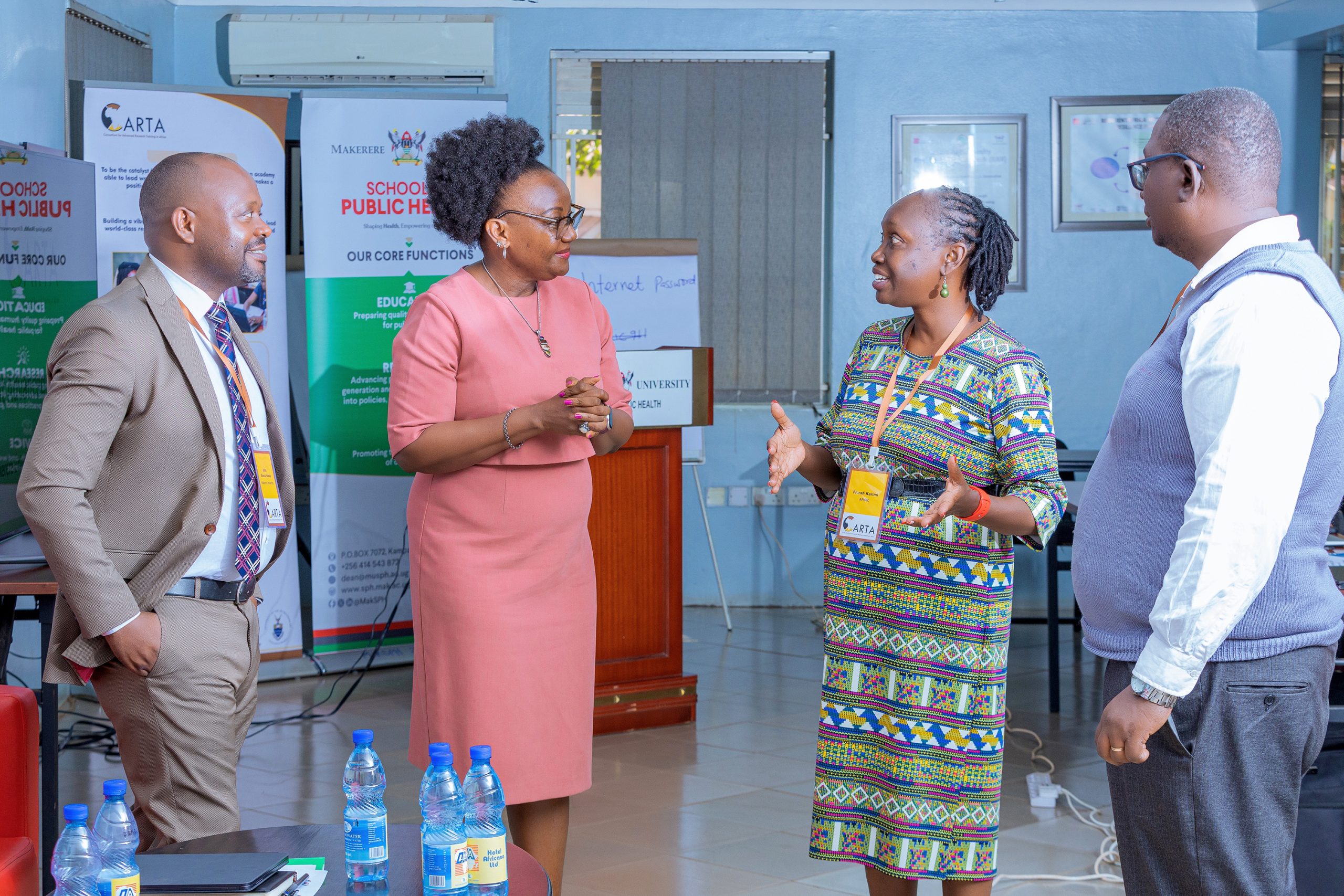
Now, since its inception over a decade ago, the consortium has supported many early career researchers across its partner institutions in Africa, admitting at least 265 doctoral Fellows and graduating over 183 of them. In turn, the Fellows have gone on to contribute to over 4,000 peer-reviewed research publications and secured more than $43 million in research grant awards, applying the skills gained through the intensive CARTA four-year programme.
Of the 183 CARTA graduates, Makerere University has had its fair share, with 25 PhD graduates supported through the consortium. One of them, Dr. Kato Charles Drago of the 3rd CARTA doctoral fellowship cohort who completed his PhD in clinical immunology and molecular genetics at Makerere University in 2016, is currently a Lecturer and Head, Department of Biotechnical and Diagnostic Sciences, and the Principal Investigator for the TERID Research Hub at Makerere University, where he is leading the efforts to improve disease diagnosis, treatment, and research capacity development within the region.
The ongoing Joint Advanced Seminar One (JAS 1) for the 11th cohort of the CARTA doctoral fellowship, launched last week at Makerere University School of Public Health’s (MakSPH) Resilient Africa Network in Kololo, Kampala, Uganda, runs for three weeks until March 21. Dr. John Bosco Isunju, CARTA Board member and institutional focal person at Makerere University noted that JAS 1 is designed to build critical thinking, technical skills, and core research competencies, critical for exposing the Fellows to key theories, seminal readings, and interdisciplinary research methods to interrogate public and population health.
“For our Fellows, you are joining the best consortium on the continent, to give you the best skills and make you change agents in your institutions. That is really CARTA’s vision. To create a critical mass that will go back and transform the situation in your institutions. What you are going to get here is the skills to write grants and attract resources, and skills to network and make partnerships. The first partners are the colleagues you have around you,” Dr Isunju said.
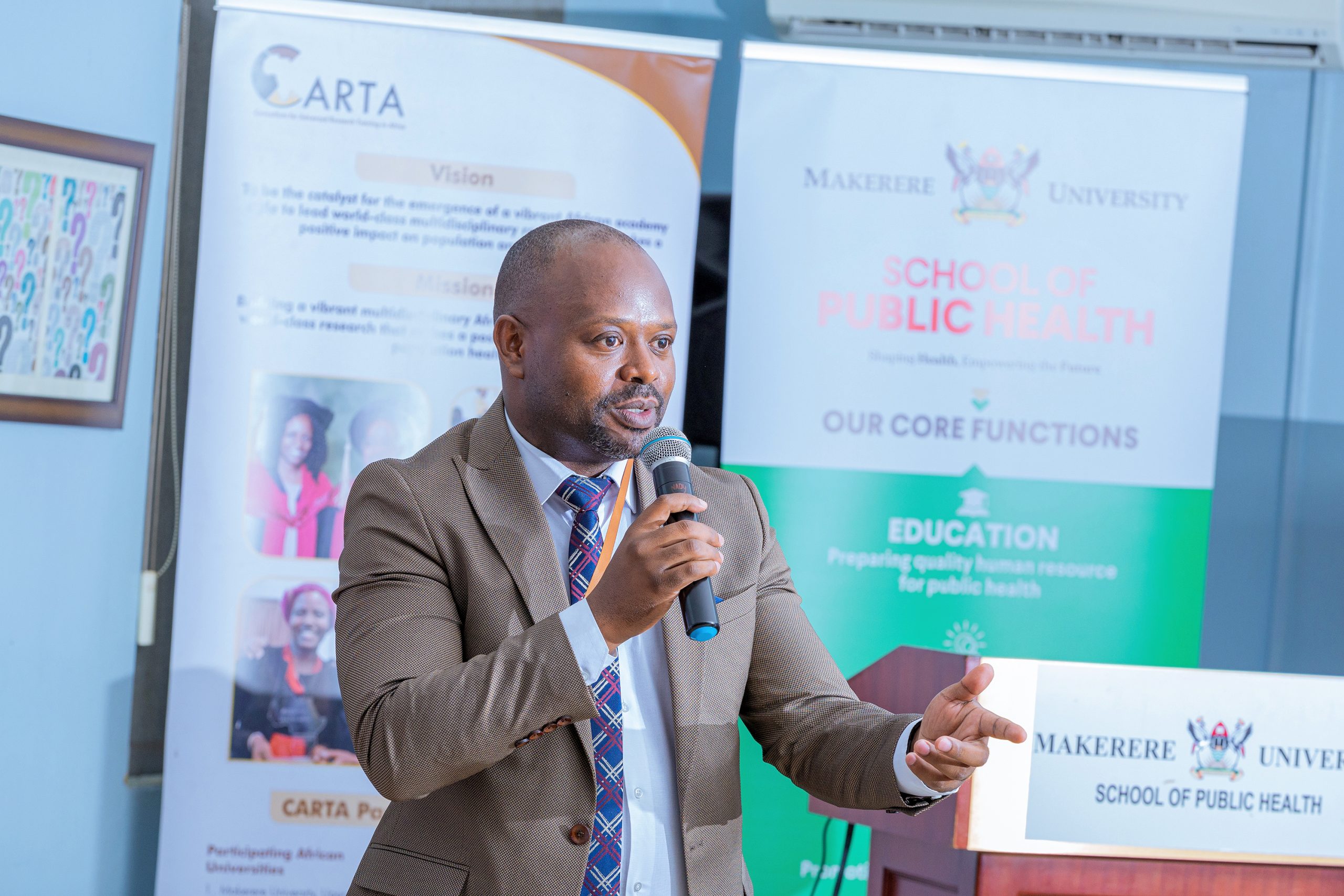
He revealed that the emergence of COVID-19 pandemic disrupted the 10th cohort, whose JAS 1 training was prematurely concluded in 2020. Since then, no new cohort of CARTA doctoral fellows had been admitted until now. “It has been a long struggle, but thanks to our dedicated partners worldwide who recognize the need and the gap, we are finally here,” Isunju shared.
The current 11th cohort was possible with support from the Swedish International Development Cooperation Agency (Sida) and the Oak Foundation (OAK), selected from a competitive pool of more than 150 eligible applicants from CARTA partner institutions.
Notably, for the first time, the consortium is having two PhD Fellows coming from Somali National University (SNU), that is: Ms. Amina Hassan Husien and Mr. Gallad Dahir Hassan. The two students will be hosted at Makerere University for their doctoral studies, to aid with capacity development and mentorship. Their research focus will be around maternal and reproductive health, and vaccine-preventable disease surveillance, respectively.
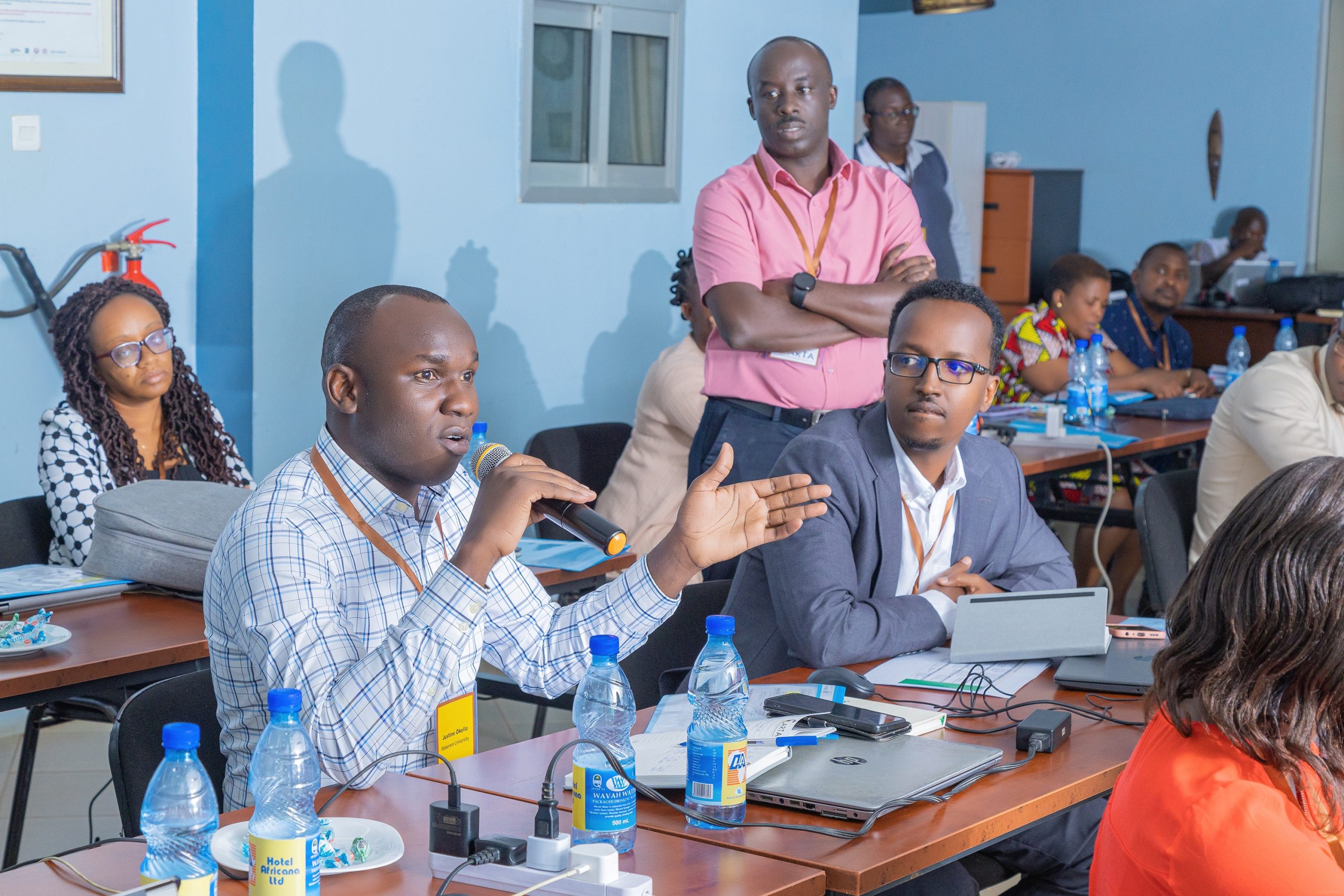
Expressing optimism, Gallad said the fellowship will equip them with the requisite skills to conduct policy-relevant research, ultimately enabling them (the Fellows) make meaningful impact in their home institutions and contribute to Africa’s research and development agenda.
“My research is in disease surveillance system especially vaccines preventable diseases. I want to fill the gap in reporting from the community level. I appreciate CARTA for providing us with this invaluable opportunity and Prof. Rhoda Wanyenze for her efforts to secure the two positions for Somalia National University to be mentored at Makerere University.” He said.
For her part, officiating the launch of the 11th cohort of the CARTA doctoral fellowship, Makerere University School of Public Health Dean, Prof. Rhoda Wanyenze, expressed gratitude for the support to help the Fellows through their PhD journeys. However, she challenged the Fellows to look beyond simply earning their PhD qualifications and instead focus on making meaningful contributions that improve lives and impact communities.
“I know each of you has likely defined what success looks like at the end of this programme or even 10 years from now. But I urge you to go beyond personal achievement and add to that impacting others, shaping the world around you, starting with Africa, and speaking for something you are really passionate about,” Prof. Rhoda Wanyenze emphasized.
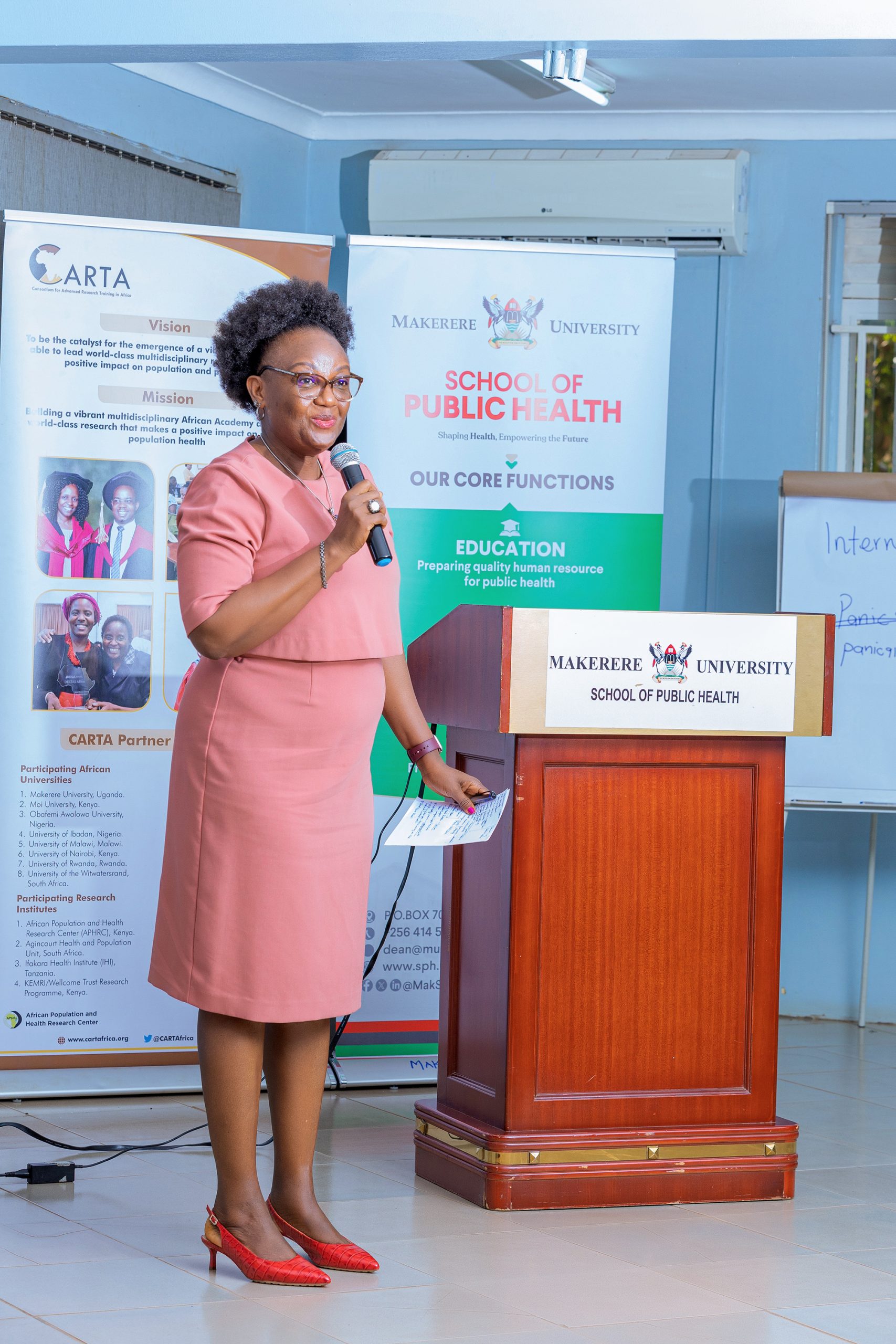
She also noted that the 11th cohort is unique, because they are starting their PhD journey amid major global changes. While these shifts may pose a challenge, she said they also present an opportunity to rethink how health systems are structured, financed, and coordinated, to enhance the promotion of global health equity and access to critical services.
The CARTA doctoral fellowship supports PhD students at partner institutions through the Joint Advanced Seminars (JAS), in addition to offering stipend, research funding, essential equipment and software, and coverage for tuition, medical insurance, and travel. Fellows also receive mentorship, supervisory support, networking opportunities, and training in grant writing and research dissemination, including support for presentations at international conferences. The fellowship is open to staff from CARTA partner institutions.
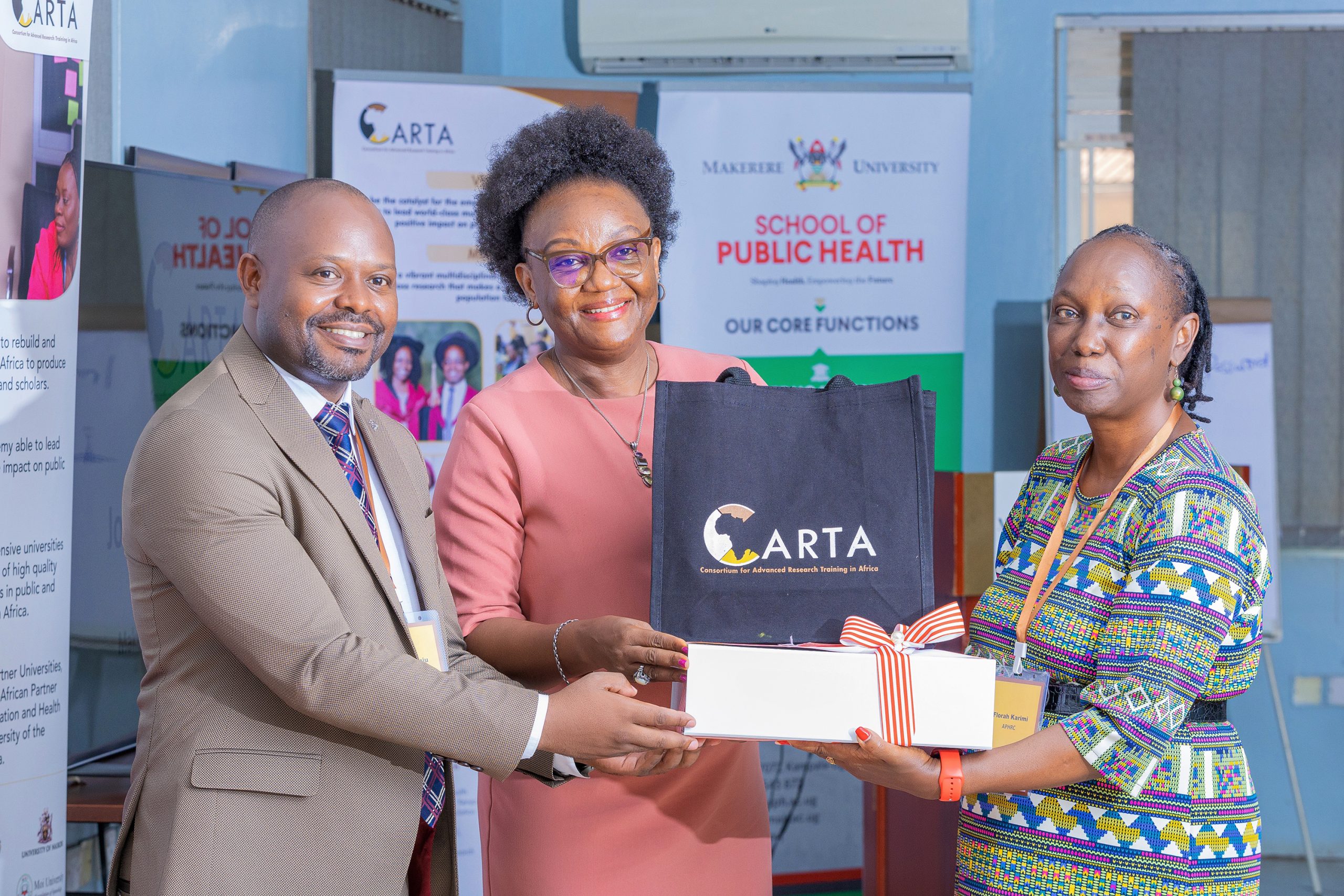
Dr. Florah Karimi, the CARTA Program Manager for Institutionalization and Scientific Quality and the Head of Research and Capacity Strengthening at APHRC, Kenya, stated that CARTA’s structured doctoral model has transformed PhD education in African universities, integrating mentorship and interdisciplinary approach to training to produce scholars who are well equipped for global academic and policy engagement.
“CARTA has grown, and we now consider ourselves a proven concept. We deeply appreciate the support from our partner institutions, which have been instrumental in shaping what CARTA is all about. As more institutions come on board, we have reached a point where this is no longer just about us. We are influencing our universities, shaping individual careers, and now, we must extend that impact to other institutions,” Dr. Karimi noted passionately.
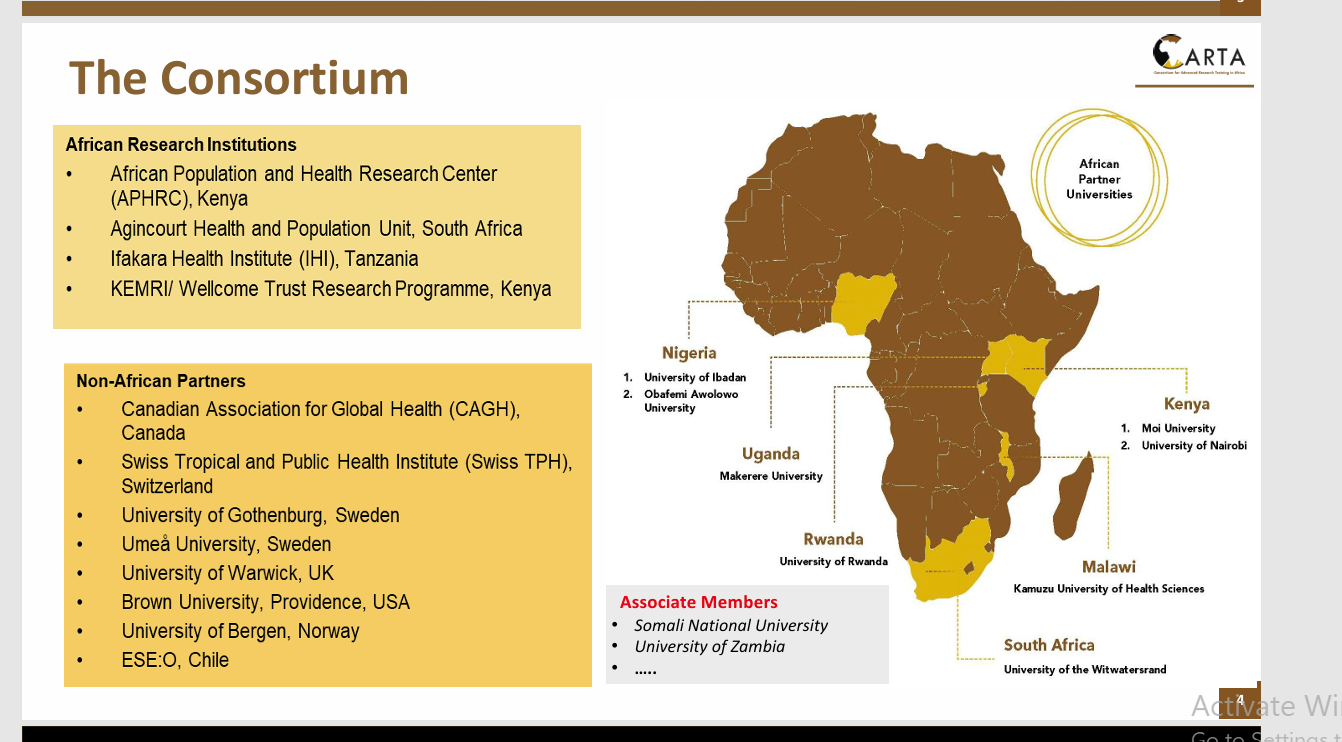
You may like
-
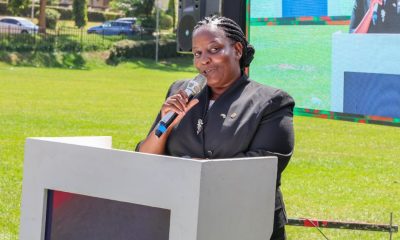

Emorimor Calls for Makerere to Upgrade Parenting Course
-
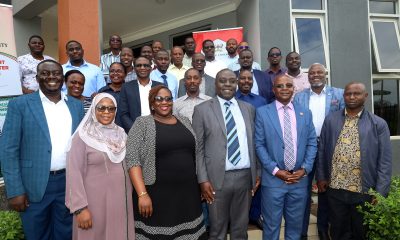

Uganda Deepens Economic Governance with Training on Regulatory Cost-Benefit Analysis
-


CoCIS CIPSD Online Short Courses Jul-Nov 2025
-
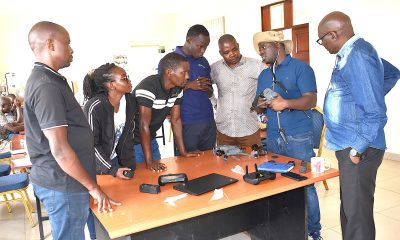

NbS4Tea Project Team Makes Great Progress, Deploys Drones for Data Collection
-


UVCF Makes Case for HEAC Programme
-


Mastercard Foundation Board pays its inaugural visit to Makerere University
Agriculture & Environment
NbS4Tea Project Team Makes Great Progress, Deploys Drones for Data Collection
Published
6 days agoon
June 24, 2025
****Funded by the Danish Fellowship Centre under Denmark’s Ministry of Foreign Affairs, NbS4Tea is a five-year initiative aimed at enhancing climate resilience and tea productivity in Uganda.
Launch of drones for data collection
The Nature-based Solutions for Tea (NbS4Tea) project has registered a significant milestone with the successful deployment of drones to improve environmental and agricultural data collection.
On 19th June 2025, the project team officially launched the drones at the Rwebitaba Tea Research Centre in Kyenjojo District, the project’s main research hub. The launch event included hands-on training sessions by Mr. Timothy Mutungi, a certified Remote Sensing Drone Pilot. Mr. Mutungi provided detailed instruction on drone operation, safety procedures, and data acquisition techniques specifically tailored to the project’s goals. The training was attended the core NbS4Tea researchers as well as students supported by the project.

By utilizing drone technology, the team will be able to capture high-resolution imagery and gather critical environmental data across vast tea-growing areas. This will enable more precise assessments of biodiversity, soil health, water use, and overall ecosystem services. The valuable insights generated will guide the development of sustainable, nature-based agricultural practices with the potential for widespread adoption throughout the tea industry.
About the NbS4Tea Project
NbS4Tea is a five-year initiative aimed at enhancing climate resilience and tea productivity in Uganda. Funded by the Danish Fellowship Centre under Denmark’s Ministry of Foreign Affairs and led by Dr Emmanuel Arthur from Aarhus University, the project is being implemented through a consortium of Ugandan and Danish institutions namely: Makerere University, the National Agricultural Research Organization (NARO), Uganda, Uganda Tea Association, Aarhus University, Denmark, and Kick-start International.

The primary objective of the project is to sustainably close the tea yield gap in Uganda by developing research-driven, nature-based solutions that enhance the climate resilience of tea production systems. This involves identifying climate-resilient tea varieties, integrating tea prunings and banana by-products, utilizing nitrogen-fixing agroforestry trees, and improving irrigation management. The approach emphasizes socio-economic feasibility, capacity building in research, and a market-oriented, multi-stakeholder collaboration to ensure both environmental and economic sustainability.
At Makerere University, the project is coordinated by Dr Alex Nimusiima from the Department of Geography, Geo-Informatics and Climatic Sciences at CAES. Other Project members are; Dr Grace Nakabonge from the Department of Forestry, Biodiversity and Tourism; Dr Prossy Nakawuka from the Department of Agricultural and Bio-systems Engineering; Dr Twaha Ali Basamba from the Department of Agricultural Production; and Dr Alice Turinawe from the Department of Agribusiness and Natural Resource Economics.

Specific objectives
- Identify and quantify climate change impacts on tea yield and quality based on historical and newly obtained data and novel data mining methods.
- Screen, select and recommend tea varieties adapted to abiotic (drought and heat) and biotic stresses (diseases and pests).
- Develop new knowledge on the potential of local waste biomass (tea prunings, banana pseudostems and peels) as soil amendments- mulch, compost, biochar, to recycle nutrients, improve soil fertility, increase carbon sequestration and alleviate drought.
- Reveal NbS through agroforestry combined with organic mulch, irrigation and resilient tea varieties that increase biodiversity and tea yield.
- Innovate new methods to enhance tea production under climate change through rainwater harvest and climate-smart irrigation infrastructure.
- Empower vulnerable groups (women, youth, and people with disabilities) in tea production and processing to ensure multi-actor involvement and socio-economic benefit outreach of the proposed NbS in tea cultivation and production.
- Identify export market strategies for NbS tea products, aligned with consumer preferences.

Progress thus far
Launched in January 2024, the project, organized in five work packages, has registered significant progress. Each of the work packages listed below supports one PhD student and one Masters’ student. The PhD students are: i) Mr. Adiga Hassan from the Department of Geography, Geo-Informatics and Climatic Sciences at CAES conducting research under work package 1; ii) Ms. Sarah Namayengo from the Department of Forestry, Biodiversity and Tourism conducting research under work package 2; Ms. Vivian Namutebi from the Department of Soil Science and Land Use Management undertaking research on work package 3; Mr. Keneth Chelimo from the Department of Agricultural and Biosystems Engineering conducting his research under work package 4; and Ms. Moreen Asasira from the Department of Agribusiness and Natural Resource Economics focusing on work package 5. The Masters students are: i) Ms. Evelyn Katasi from the Department of Environmental Management at CAES (work package 1), Mr. Vereriano Turyahebwa from Department of Forestry, Biodiversity and Tourism (work package 2); Mr. Ben Okurut from the Department of Soil Science and Land Use Management (work package 3); Mr. Augustine Okot from the Department of Agricultural and Biosystems Engineering (work package 4); and Mr. Augustine Kigozi from the Department of Agribusiness and Natural Resource Economics (work package 5)

Work packages and achievements registered
Work Package 1: Climate change impacts on tea yield and quality – Headed by Dr. Alex Nimusiima
This work package centres on the analysis of historical and projected climate conditions in the study area. It examines how current climate patterns influence tea production, as well as the potential effects of future climate change on tea yield and quality.
Progress
i) A household survey assessing the socio-economic status of tea farmers and the effects of climate variability on their livelihoods has been completed.
ii) The collected data has been cleaned, and the Masters student supported under this work package is currently writing her thesis based on the survey findings.
iii) A historical climate analysis of the study area has been conducted by the PhD student, who is now preparing a manuscript.

Work Package 2: Screening & selecting tea genotypes for resilience to abiotic and biotic stresses – Headed by Assoc. Prof. Grace Nakabonge
This work package focuses on evaluating existing tea genotypes for their resistance to pests and diseases, using chlorophyll fluorescence imaging as a diagnostic tool.
Progress
i) A screen house has been constructed to serve as the experimental site.
ii) Germplasm from two tea varieties is currently being cultivated in the screen house in preparation for the upcoming experiments.
iii) A drone has been acquired to assist in data collection for this work package.

Work Package 3: Evaluation of NbS for climate resilience, higher yield and biodiversity- Headed by Assoc. Prof. Twaha Ali Basamba
This focuses on the characterization of mulch and biochar derived from tea prunings to improve soil health. It also aims to quantify the added value of Nature-based Solutions (NbS) in enhancing tea productivity, promoting climate resilience, and supporting biodiversity.
Progress
- So far, Biochar has been produced from tea prunings and characterized.
- The Masters student supported under this work package is writing his thesis on the results of biochar characterization.

Work Package 4: Innovating smart and scalable irrigation technology for improved tea production- Headed by Dr. Prossie Nakawuka
This work package aims to develop and evaluate smart, scalable irrigation solutions to boost tea production. It focuses on assessing how irrigation impacts tea yield and quality, measuring water use efficiency, and analyzing the economic returns of irrigation practices. Additionally, it explores deficit irrigation and climate-resilient strategies to ensure sustainable tea farming in changing environmental conditions.
Progress
- The irrigation infrastructure is now in place and fully operational at Rwebitaba Tea Research Centre in Kyenjojo District.
- The experimental plots for irrigation experiments are already in place with water pipes.

Work package 5: Socio-economic assessment of tea-agroforestry and selected tea varieties – Headed by Dr. Alice Turinawe
This work package emphasizes co-creation within multi-stakeholder innovation networks to evaluate the economic feasibility and market access of tea agroforestry systems. It also focuses on promoting gender balance and understanding consumer valuation of Nature-based Solutions (NbS) tea from Uganda.
Progress
To date, two co-creation workshops have been successfully conducted and the Masters student under this work package is currently analyzing the workshop results as part of their research.

Expected outputs and outcomes
- Increased tea production, productivity, and biodiversity through the adoption of NbS.
- Increased research and technical capacity of Makerere and R-ZARDI.
- Holistic stakeholder insight on economic feasibility, consumer acceptance and market access strategies, especially for vulnerable groups in the tea value chain.
- Increased job prospects for youth and women in tea production sub-sectors.
- Improved social status and increased incomes of tea farmers, traders, and exporters.
- Improved economic and environmental quality by recycling biomass waste into value-added products dedicated to soil enhancement.
- 4+ high-yielding tea genotypes adapted to drought and heat, diseases and pests.
- 15+ scientific articles, conference presentations.
- Five PhDs and Five MSc degrees.
- Market access assessment and empowerment.

Details on the project: https://news.mak.ac.ug/2024/01/new-caes-project-to-improve-tea-production-in-uganda/
More photos from the event



General
Directorate of Graduate Training Rolls out Research Management Information Sytems (RIMS)
Published
3 weeks agoon
June 12, 2025By
Mak Editor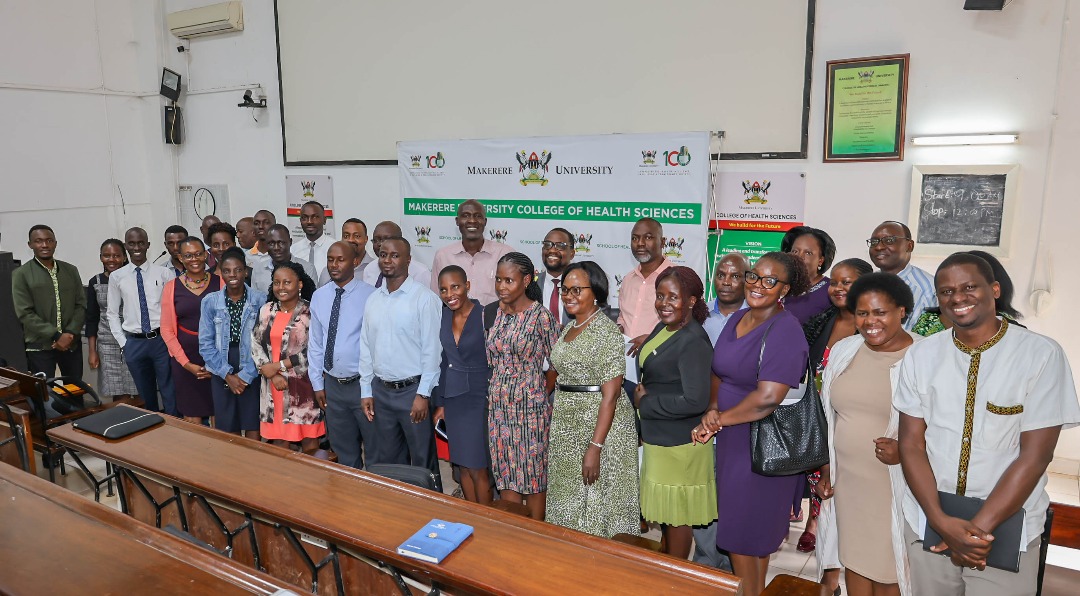
By: Moses Lutaaya
The Directorate of Graduate Training is rolling out the Research Management Information systems (RIMS) to efficiently and effectively monitor the academic progress of all graduate students.
“RIMS will be used to track efficiently every stage of activity of graduate studies from course works, research concept to thesis completion.” The Director of Graduate Training, Prof. Julius Kikooma said.
He added, “The RIMS team is here to share developments on the system that are designed to support the agenda of Makerere university. When graduate students enter a given chapter of their research works, their supervisors will automatically receive mail prompts to swiftly handle, give comments and guide the students on the way forward.”
During the roll out training recently at the College of Health Sciences in Mulago, Prof. Kikooma said, “The Directorate of Graduate Training is working in collaboration with Directorate of Innovation, Research and Partnerships (DIRP) and the Directorate of Information Communication and Technology Support (DICTS) to ensure a smooth training to all the schools and colleges. Digitalising the graduate management process is anticipated to increase the number of graduate admissions and completion in the long run.”
“As the three directorates, we sat and reviewed the university graduate strategy and policies around it. We got reviewed policies and procedures approved by the University Senate last year. We no longer have provisional admission letter requirement for our PhD students. It is now full admission straight away and we follow a cohort system of admission for the PhD by research students.” He added.
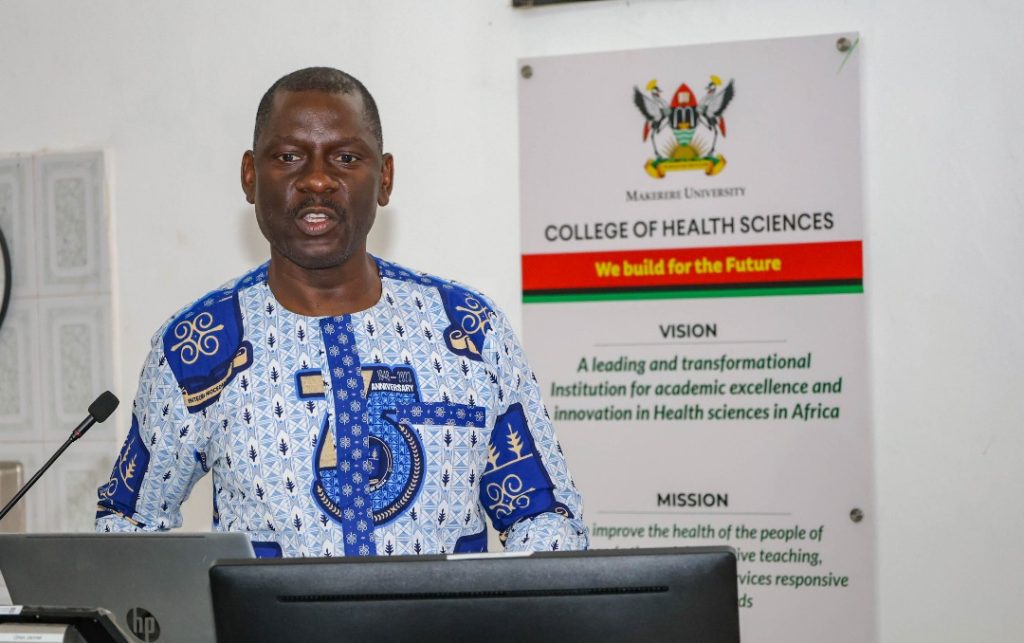
RIMS is a version of how the Directorate of Graduate Training aims to handle the process of systematic tracking of every point of progress in the entire academic journey of graduate students.
The Directorate of Graduate Training has so far conducted the RIMS training at three Colleges namely; College of Health Sciences (CHS), College of Business and Management Sciences (COBAMS) and College of Natural Sciences (CONAS).
The critical stakeholders on the RIMS value chain include Heads of Departments, College Principals and Deputy Principals, Directors, School Deans, Supervisors as well as Graduate coordinators. “All the above are key actors and must be able to use RIMS in the graduate process, capturing all profiles of students and supervisors and should be able to use it appropriately.” He emphasized.
He said that RIMS will bring all stakeholders on the same page and will be able to adequately troubleshoot any hinderance to progress when course works are done, to dissertation and thesis completion. Makerere university target is to increase its graduate students’ enrollment from 19% to at least 30% in the next five years.
Prof. Bruce James Kirenga, Principal College of Health Sciences welcomed RIMS training saying that this kind of E- learning and supervision tracking is the way to handle graduate studies as it seems to reduce the turn around time for student- supervisor responses.
“Every activity in the graduate students learning journey is monitored swiftly. Whatever the students upload on to the system, supervisors get message pop-ups on their mails, review the works immediately and attach comments for the students to appreciate and manage appropriately.” He said.
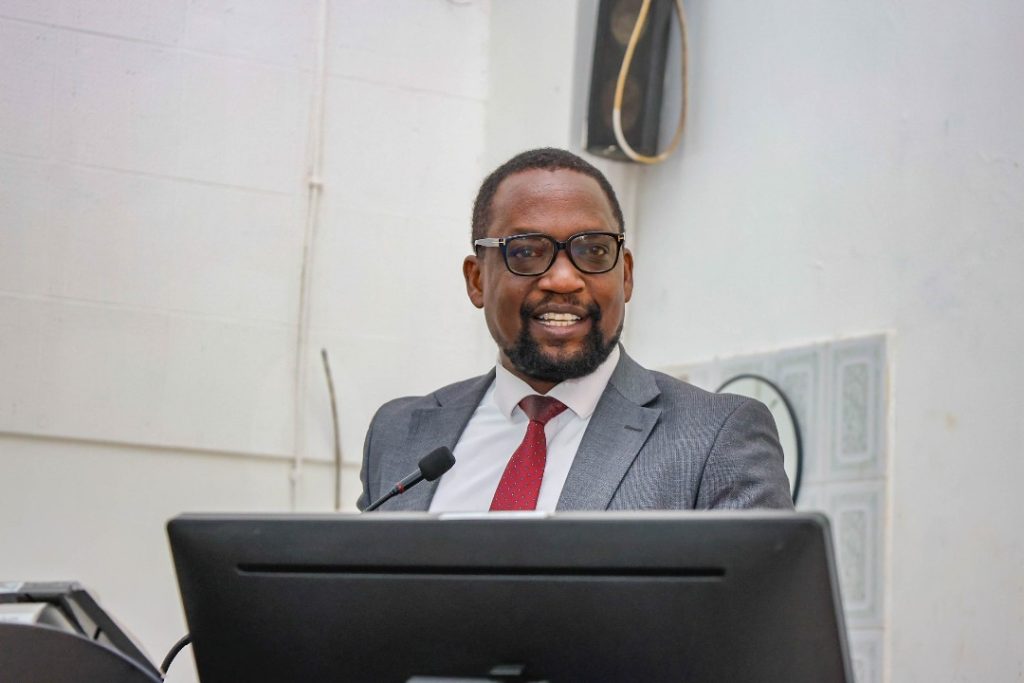
Prof. Kirenga added that the audit trail created under RIMS will provide good progressive academic reports and improve the journey to Doctoral studies.
“Heads of Departments are able to see all students in the department, any pending system approvals, observe completion rates and total progressive over view of each student and that the total overview of department performance will be clearly seen under RIMS.” He added.
Dr. Robert Kalyesubula – the Chair. Dept of Physiology, Makerere University College of Health Sciences said RIMS will improve the efficiency of supervisors while handling the graduate students.
“RIMS views all documents and proposals of students. We will be able to observe which supervisor takes long to respond, the number of days they have taken to respond and how long an issue has pended undone at a certain level.”
Research
Mak and MSU Host Landmark Symposium on Insects for Food, Feed, and Food Security in Africa
Published
3 weeks agoon
June 10, 2025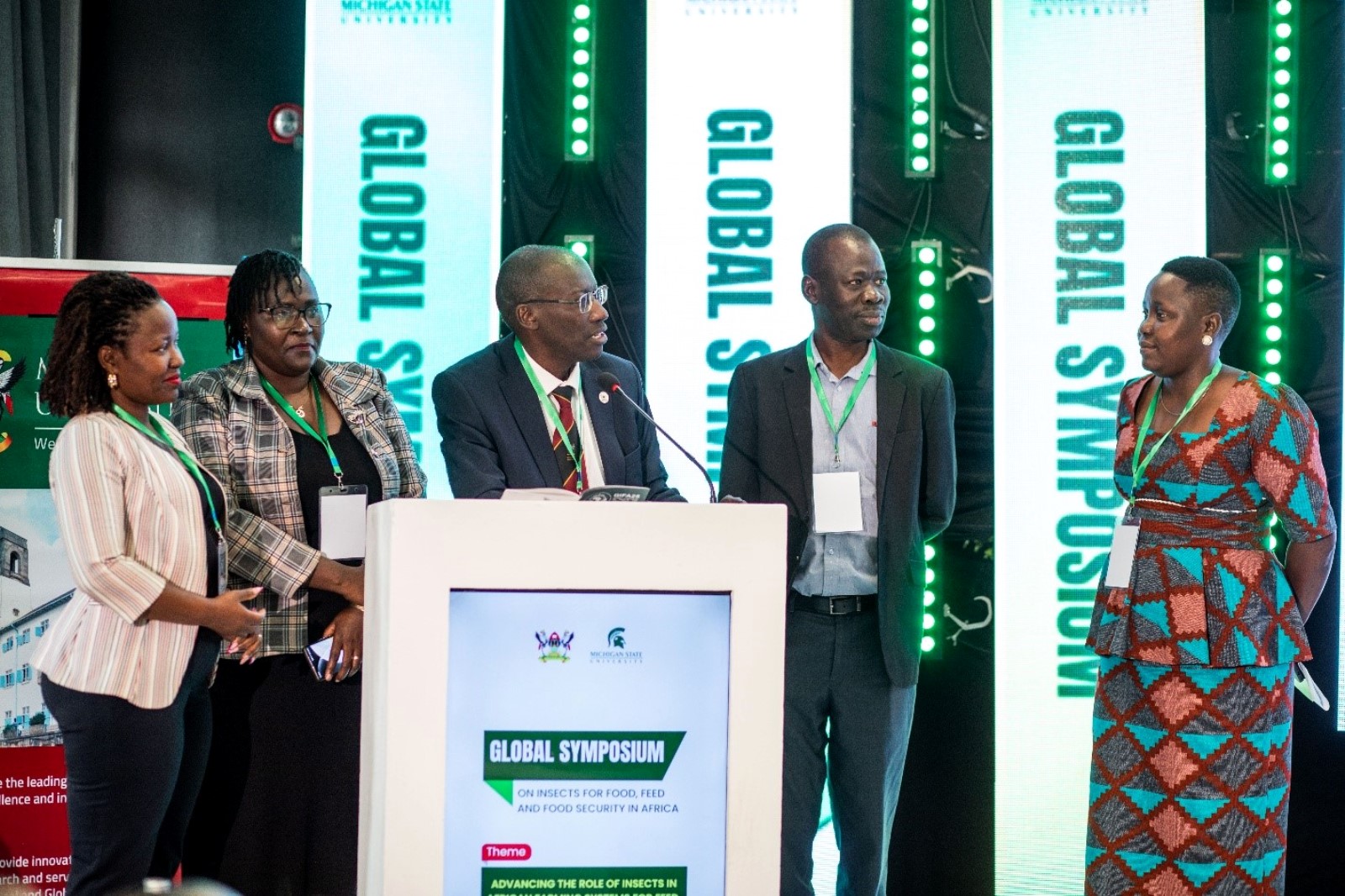
A groundbreaking symposium exploring the role of insects in African farming systems concluded on June 6th, 2025, at Onomo Hotel in Kampala. Convened by Makerere University’s College of Veterinary Medicine, Animal Resources and Biosecurity (CoVAB) in collaboration with Michigan State University (MSU), the event drew participants from over ten countries, including researchers, development experts, regulators, and practitioners.
Under the theme “Advancing the Role of Insects in African Farming Systems for Feed, Food, and Food Security,” the two-day gathering aimed to share knowledge and experiences on integrating insects into food and feed systems to address food security challenges across the continent. The discussions revolved around four key sub-themes namely; Insects as animal feed to promote sustainable livestock production and livelihoods; Insects for human food and food security, including indigenous insect-based diets; Insects for improved soil health and crop production and Commercialization of insect farming, with a focus on regulation and standardization.
The symposium commenced with opening remarks delivered on behalf of Makerere University’s Vice Chancellor, Prof. Barnabas Nawangwe, by his representative, Prof. Frank Norbert Mwiine, Principal of CoVAB. He welcomed participants and commended Dr. Deborah Amulen, Lecturer at CoVAB and chief convener, for organizing a well thought out event. He emphasized that the symposium would not only raise awareness of the role of insects in Uganda’s and Africa’s socio-economic development but also help place insects on the agenda for broader discussions and integration into food security strategies. He said the event served as a platform for knowledge exchange, highlighting the untapped potential of insect farming in transforming food security, sustainable agriculture, and economic growth.

Key facilitators at the symposium were esteemed experts from leading institutions worldwide, who shared their insights on insect-based food systems and sustainable agriculture. Among the distinguished speakers were Prof. Jeffrey K. Tomberlin from Texas A&M University, Prof. Eric M. Benbow from Michigan State University, Prof. Florence Dunkel from Montana State University, Dr. Denise Beesigamukama, a Postdoctoral Fellow, ICIPE Kenya and Dr. Deborah Amulen the host from Makerere University. These are exemplified in their contribution towards academic research and leadership, policy and industry impact and more importantly their expertise in insect science.
During the deliberations, the experts emphasized that insects offer a viable, sustainable, and nutrient-rich solution to Africa’s growing food demands. The event underscored ongoing research and commercialization efforts aimed at mainstreaming insect farming into the agricultural sector. As global interest in alternative protein sources continues to rise, the symposium marked a significant step toward harnessing the potential of insects to enhance food security in Africa.
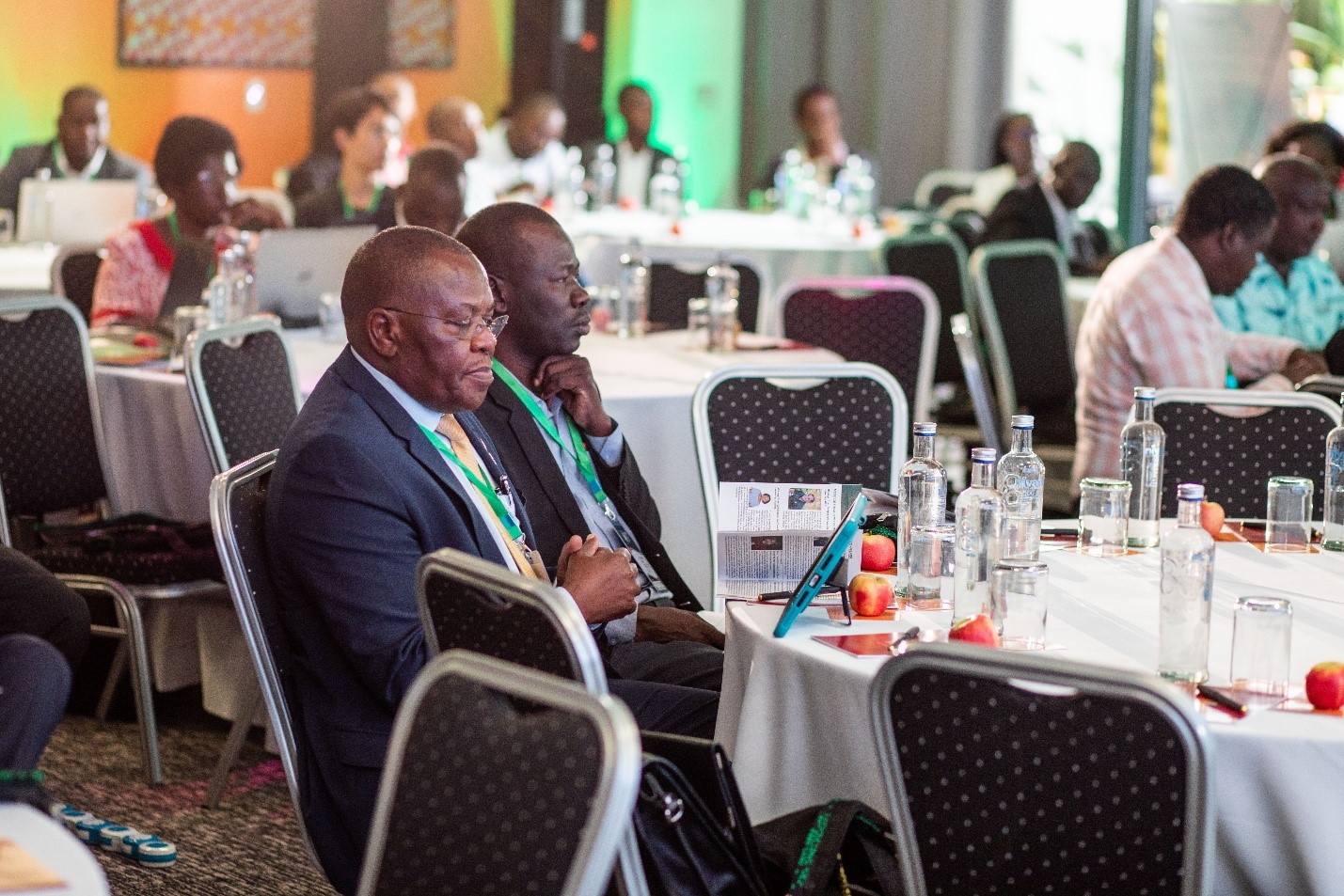
Experts underscored that Africa is home to over 470 recognized edible insect species, providing a rich source of proteins, fats, and essential micronutrients. Insects have historically been a staple in diets across Uganda, Southern Africa, and other regions, serving as a vital food source in times of drought, conflict, and food scarcity. One of the most discussed innovations at the event was the large-scale farming of Black Soldier Fly, which is being utilized to produce not only the larvae but also frass, a high-protein animal feed and organic fertilizer to enhance soil health and boost agricultural yields.
Several scholars presented their research in the area of Insects, where together with the farmers, industry representatives, policy makers and practitioners contributed valuable perspectives on advancing the role of insects in food security, animal feed, and ecological sustainability in Africa. Their discussions underscored the importance of research, policy, and commercialization in expanding insect farming across the continent.
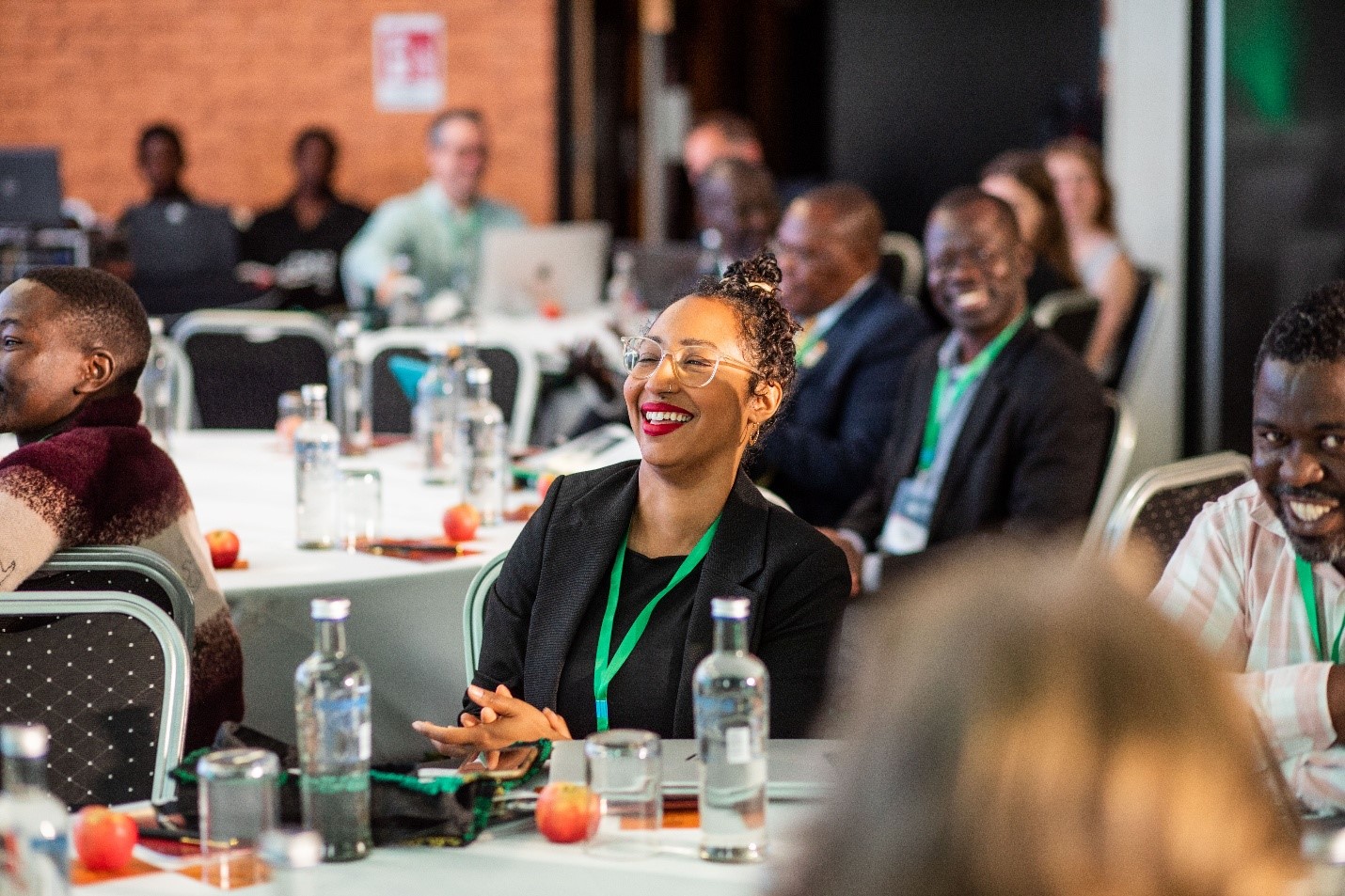
One of the keynote discussions highlighted Uganda’s rich tradition of consuming insects as part of its food culture, reinforcing their significance in nutrition and sustainability. Participants shared insights on local insect consumption practices and their role in livelihoods, drawing from countries like Cameroon, Malawi and many others represented at the event. The forum also featured representatives from key institutions, including the National Council for Science and Technology and The National Agricultural Research Organization (NARO) which contributed perspectives on research, policy development, and commercialization of insects as sustainable food sources, the Ministry for Agriculture, Animal Industry, and Fisheries (MAAIF), emphasizing the Ugandan government’s support for insect farming initiatives.
The Kenya based scientific research institute, the International Centre of Insect Physiology and Ecology (ICIPE) played a key role in the discourse and exhibited several innovations arising from research and their work in insects. Experts explored how insects can revolutionize animal feed production, providing an affordable, high-protein alternative to conventional sources.
With global attention shifting toward alternative and sustainable food sources, experts stressed the need for policy standardization and enhanced investment in insect-based food systems across Africa. During the event, MAAIF announced a $325 million investment through a six-year Smart Agriculture Transformation Project, aimed at expanding sustainable farming practices, reducing environmental impact, and increasing food security through alternative protein sources.
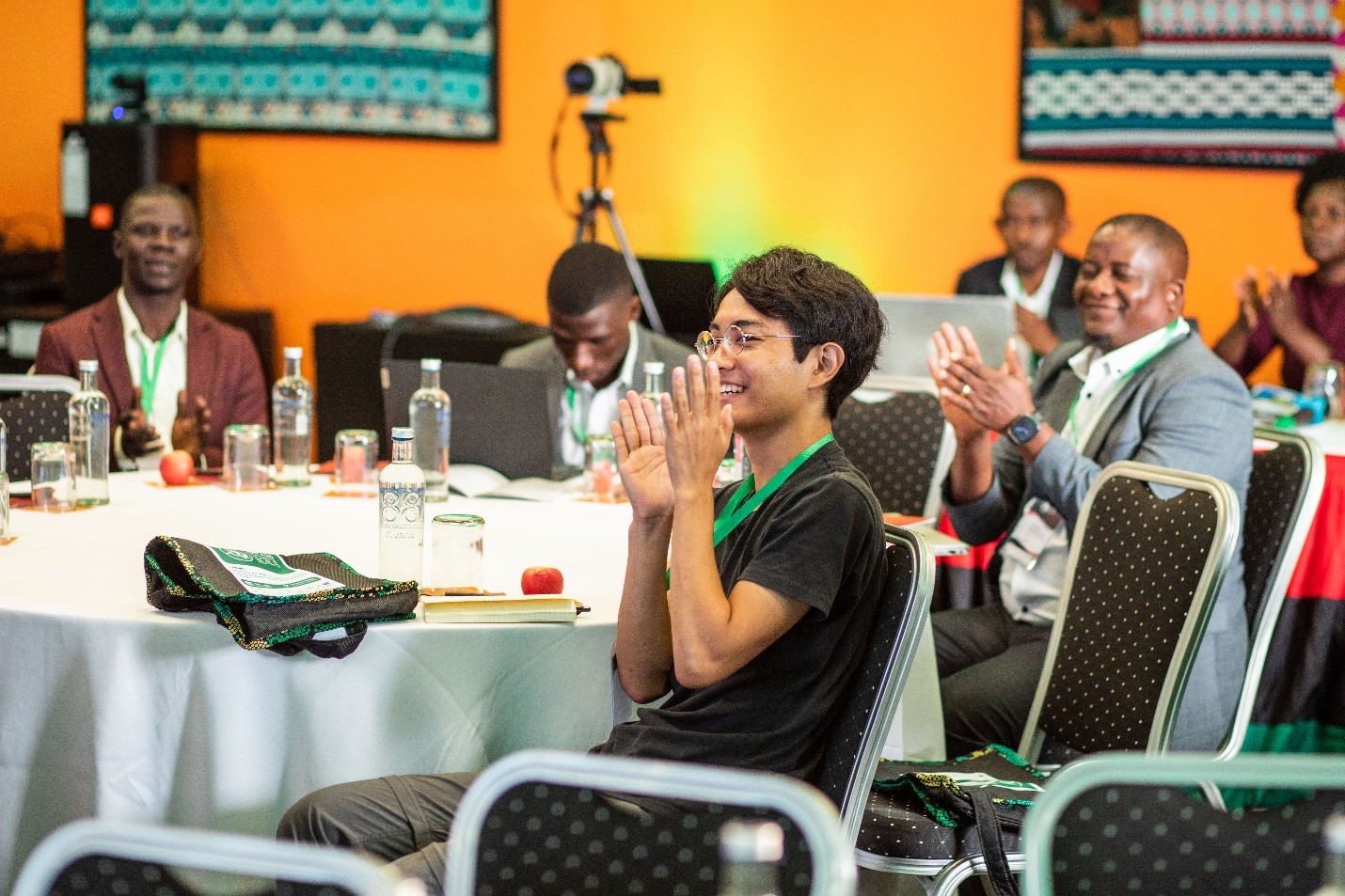
The symposium reaffirmed Africa’s position at the forefront of insect farming research, with discussions centered on scaling production, improving regulation, and leveraging indigenous knowledge for food security solutions. Moving forward, participants emphasized the importance of quality control, standardization, and policy frameworks to ensure safety, scale production, and boost market competitiveness. With Uganda leading discussions on alternative protein sources, the symposium laid the foundation for future innovations in agriculture.
Trending
-

 General3 days ago
General3 days agoMature Age Scheme Exam Results for 2025/2026
-

 General6 days ago
General6 days agoFreshers’ Joining Instructions 2025/2026
-

 General1 week ago
General1 week agoMastercard Foundation Board pays its inaugural visit to Makerere University
-

 General1 week ago
General1 week agoUVCF Makes Case for HEAC Programme
-

 Natural Sciences2 weeks ago
Natural Sciences2 weeks agoCoNAS Participates in the 2025 National Science Week Exhibition
